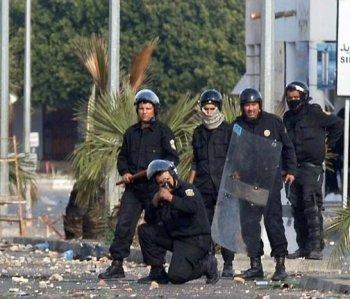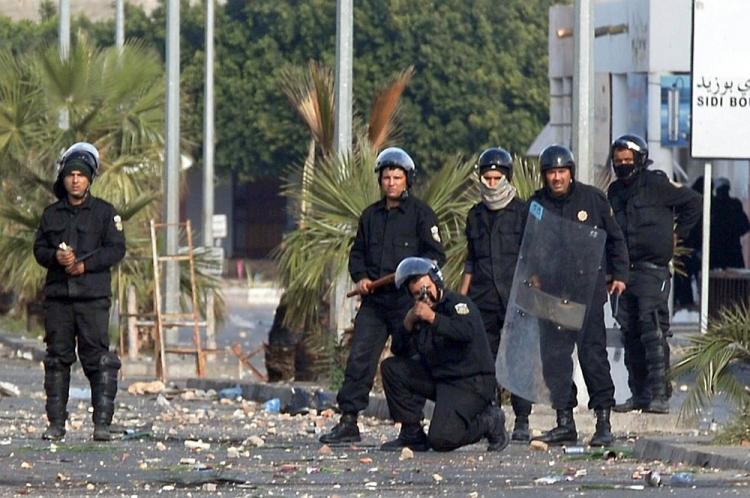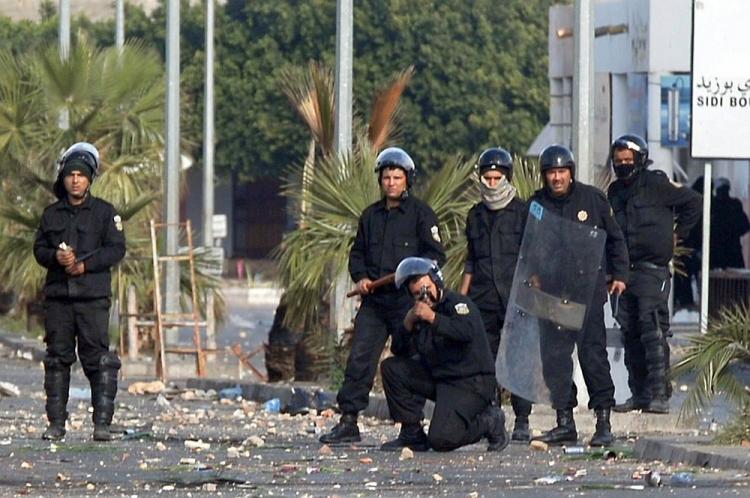Bouazizi’s act sparked large-scale protests against unemployment in the North African country. In Tunisia, protests are an uncommon sight, since voices of dissent are often suppressed by the government. The situation escalated last weekend when at least 23 protesters were killed at the hands of police, according to rights groups.
When students took to the streets again on Monday, Tunisian authorities ordered the close of all universities and schools in the country indefinitely. In an apparent offensive to bring back order, the man who has ruled Tunisia for 23 years, Zine El Abidine Ben Ali, announced plans to create 300,000 jobs over the next two years.
While Ben Ali blamed “hostile elements” from abroad for the unrest in Tunisia, rights groups say security forces have shown little restraint in handling the situation. According to information gathered by Amnesty International, security forces shot at protesters in the central Tunisian cities of Thala, Kasserine, and Regueb last weekend.
“The authorities claim they acted in self-defense, but the rising death toll and the images of demonstrations suppressed by the security forces cast serious doubt on this version of events,” said Hassiba Hadj Sahraoui, North Africa deputy director of Amnesty International in a statement on Monday. The organization says it has received information of protesters killed on Monday.
While many protests started out peacefully, some evolved into violence, with protesters throwing stones and trying to burn down government buildings. Bouazizi’s self-immolation also sparked a series of similar suicide attempts, several of which have been successful, according to Amnesty International.
“We deplore the violence and the death of civilians. … We call for restraint in the use of force and for the respect of fundamental freedoms,” European Union High Representative Catherine Ashton said in a statement on Monday.
Media Blackout
According to EU officials, bloggers in particular, as well as journalists and lawyers have been subjected to detention over the past weeks.
“The Tunisian government has been a notorious censor for many years, for journalists online and off. In the wake of widespread domestic protests in December, however, the authorities appear to have turned to even more repressive tactics to silence reporting,” wrote the Committee to Protect Journalists.
In an attempt to blackout bloggers and online activists, their passwords have allegedly been stolen by authorities, their e-mail accounts targeted, and Internet access blocked.
“We are concerned about recent reports that Tunisian ISP providers, at the direction of the government, hacked into the accounts of Tunisian users of American companies including Facebook, and providers of e-mail such as Yahoo and Google, and stealing passwords,” said State Department spokesperson Philip J. Crowley in a Jan. 7 statement.
According to Amnesty International at least three bloggers have been arrested.







Friends Read Free